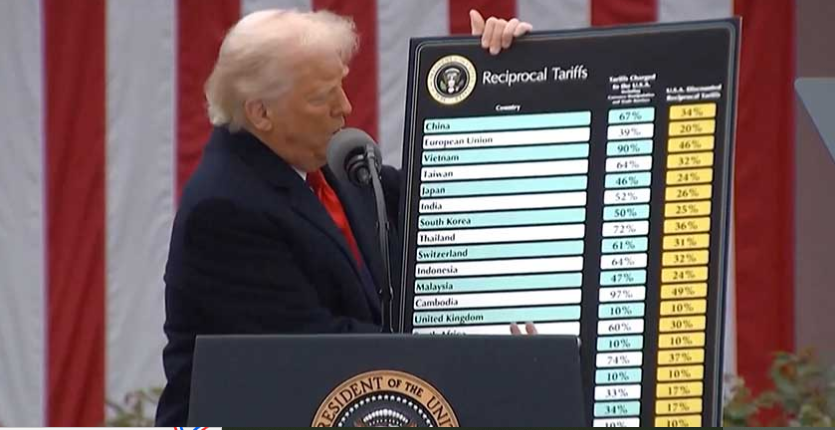British exports to the United States fell by a record £2 billion in April, as newly imposed tariffs by President Donald Trump’s administration took a heavy toll on transatlantic trade, official data has revealed.
According to figures released this week, the sharp decline marks the steepest monthly drop in UK exports to the US since records began in 1997. The plunge followed Washington’s April 2 announcement of a 10% minimum tariff on UK goods, part of a sweeping tariff package targeting over 120 global economies.
Though the White House temporarily paused the tariffs just a week later amid intense criticism from allies and American industry groups, the damage had already begun to ripple through British industry. Key sectors, including automotive, steel and aluminium, have been particularly affected — all of which remain at risk of facing an additional 25% import tax under proposals still on the table in Washington.
In the lead-up to the tariff introduction, UK exporters had accelerated shipments to the US, with data showing a steady rise in exports from January through March. But April’s figures indicate that this front-loading effort has now collapsed, underlining the volatility created by the abrupt changes in US trade policy.
The broader uncertainty surrounding UK-US trade relations has only intensified. Despite recent negotiations aimed at reaching a bilateral steel agreement, it remains unclear whether the UK will secure any exemption from the full impact of Trump’s evolving tariff regime.
Industry groups have warned that the on-again, off-again nature of the US approach to tariffs is wreaking havoc on long-term planning. “Businesses made a huge effort to move goods early, but this cliff-edge approach to tariffs is costing us dearly,” one trade body representative said. “The stop-start policy makes planning virtually impossible.”
With the 90-day suspension on tariffs set to expire in early July, pressure is mounting on the UK government to broker a lasting resolution. Trade officials in London are expected to ramp up diplomatic efforts in the coming weeks in a bid to shield British exporters from further disruption.
For now, the dramatic fall in exports stands as a stark warning. Despite early-year momentum, the UK’s trade relationship with its largest single-country trading partner faces significant challenges — with lasting implications if clarity and cooperation cannot be swiftly restored.

